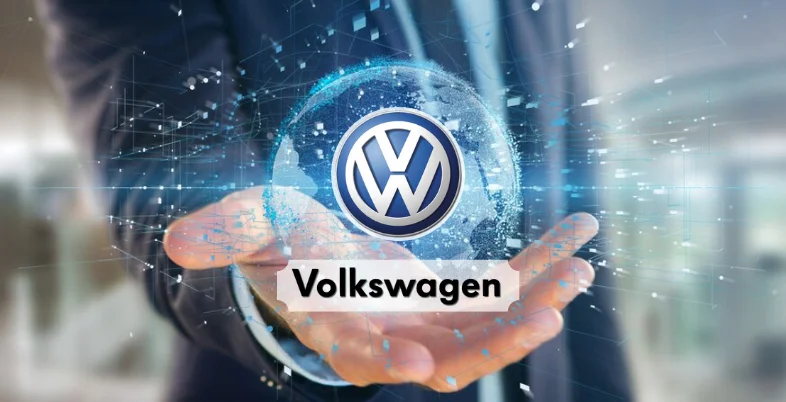If you’ve ever considered how many companies Volkswagen owns, you may be amazed. Although numerous car fans know almost all of Volkswagen’s significant effect on the automotive sector, the extent of the Volkswagen group is actually greater than commonly accepted.
With two divisions, part between the car and financial services industry, Volkswagen really plays a part in hundreds of companies worldwide. As of 2023, Volkswagen Group controlled around 11.4% of the worldwide passenger car market, setting its position as one of the driving car producers in the world.
Some of the most well-known vehicle brands globally are claimed by the Volkswagen Group. So, let’s take a look at all the companies owned by Volkswagen that are driven by the company.
About Volkswagen Group
Wolfsburg based Volkswagen Group is one of the world’s premier automobile manufacturing companies with 12 brands including Volkswagen, Audi, Porsche, Lamborghini and Bentley. Initially established in 1937, the company has grown into a global player producing all kinds of automobiles, from B-segment cars to luxury cars. The company is a pioneer in car development, especially in electric mobility, with its ID and series marking a critical push towards sustainable transportation.
Volkswagen Group also emphasises digital change, investing in autonomous driving advances and keen mobility solutions. Despite the fact that the company faced certain problems similar to the 2015 emissions scandal, it has tried to minimise the negative image by exhibiting increased transparency and environmental responsibility. The car-producer company now known as Volkswagen has worked on vision 2050, which means to achieve net-zero carbon emission value by 2050 and Volkswagen group serves as the future of the car industry through innovation, sustainability and diversified product range.
The Volkswagen Group’s Global Footprint
- Germany: Volkswagen Group’s headquarters in Wolfsburg stays the company’s worldwide operations, with major production plants in Wolfsburg, Zwickau, and Dresden. As a driving automaker, it drives progression within the car industry, particularly in electric mobility, and basically influences Germany’s economy, work, and technological advancement.
- United States: Volkswagen Group’s Chattanooga, Tennessee plant is critical for North American operations, producing vehicles like the Atlas and the all-electric ID.4. The company’s effect grows to the broader U.S. market, driving progressions in electric vehicles and contributing to the neighbourhood economy through work creation and investments in temperate transportation.
- China: China is Volkswagen Group’s greatest market, where it works through joint ventures like FAW-Volkswagen and SAIC Volkswagen. With wide production offices and R&D centres, the company’s influence in China is significant, forming the automotive industry’s direction and driving the charge in electric vehicle adoption in the region.
- Brazil: Volkswagen Group incorporates a solid presence in Brazil, with production plants in São Bernardo do Campo, Taubaté, and São Carlos. It plays a very influential role in the planning and production of automobiles in Latin America and responds to the specific needs of the region while also encouraging and promoting the local industry there.
- Mexico: Puebla manufacturing unit is a central manufacturing hub of Volkswagen Group for North American and Latin American markets. The company’s impact in Mexico is not limited to manufacturing only because it participates actively in automotive exports thus fostering financial growth and technological advancement in Mexico.
- India: Volkswagen Group has two manufacturing units in India, manufacturers in Pune and Aurangabad with efforts to popularise the Skoda and Volkswagen brands are in progress. It is this limelight in the car market in India that was exhibited through the introduction of the regional models which set pace in the industry and overall boosted the industrial growth.
- United Kingdom: Volkswagen Group’s impact in the UK is notable through its extravagance brands, Bentley and Lamborghini. Bentley’s headquarters in Crewe is a hub for extravagant automotive innovation, significantly affecting the UK’s economy, employment, and reputation in high-end vehicle manufacturing.
These car companies owned by Volkswagen are centers that illustrate the Volkswagen Group’s broad worldwide presence, with key era and R&D offices deliberately found in major automotive markets around the world.
List of the Companies Owned by Volkswagen
1. Volkswagen – The Parent Company
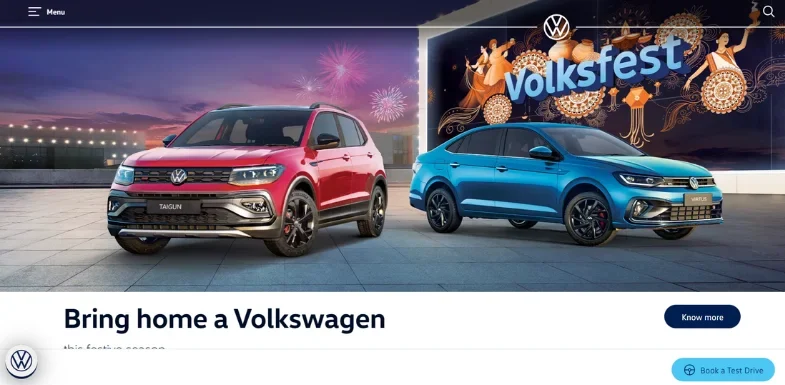
- Founding: Set up in 1937, Volkswagen is the lead brand of the Volkswagen Group, known for its notorious models just like the Beetle and Golf.
- Market Position: Volkswagen is among the largest car manufacturers globally with a broad range of vehicle choices starting from small compact cars to large sports utility vehicles.
- Innovation: The brand is at the forefront of electric versatility, with its ID and series driving the charge toward economical transportation.
- Global Presence: Volkswagen contains a strong worldwide presence, with era plants and deals systems across Europe, the Americas, and Asia.
- Sustainability: Volkswagen is committed to finishing net-zero carbon emissions by 2050, contributing intensely in electric vehicles and green technologies.
2. Audi – The Luxury Division
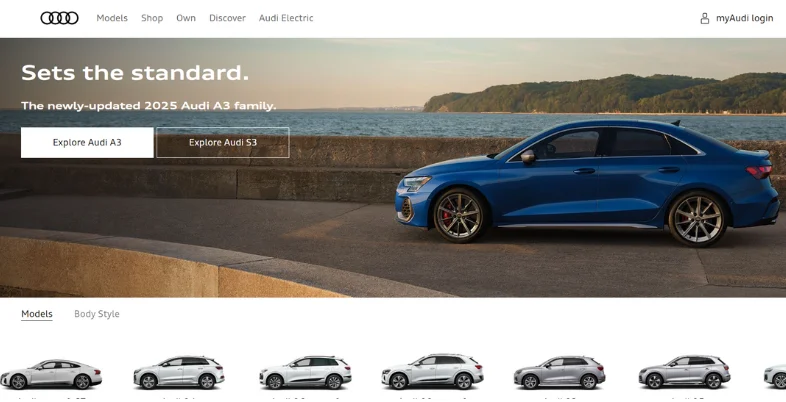
- Luxury Brand: Audi, obtained by Volkswagen in 1966, is a premium car brand known for its advanced arrangement, advanced development, and high-performance vehicles.
- Quattro Technology: Audi revolutionised the car industry with its Quattro all-wheel-drive system, overhauling security and execution in totally different driving conditions.
- Electrification: Audi is heavily investing in electric vehicles, with models like the e-tron leading its move toward an economical future.
- Innovation: The brand is known for its cutting-edge innovation, including the Virtual Cockpit and MMI infotainment system, setting industry measures in extravagance cars.
- Global Reach: Audi contains a solid presence in key markets worldwide, including Europe, the U.S., and China, contributing altogether to Volkswagen Group’s luxury segment.
3. Porsche – The Iconic Sports Car Brand
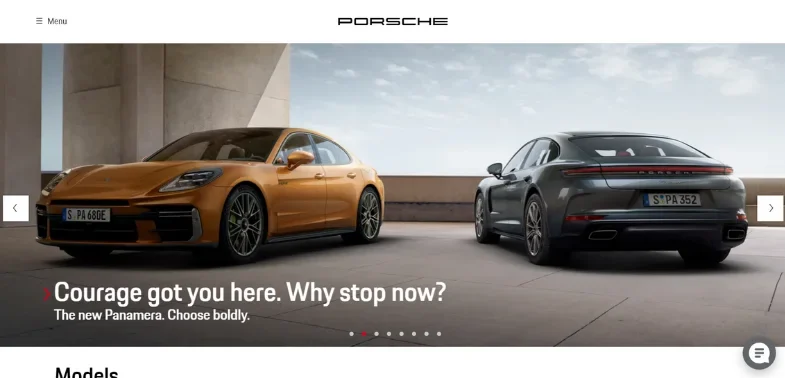
- Sports Car Heritage: Established in 1931, Porsche is eminent for its high-performance sports cars, with iconic models just like the 911.
- Engineering Excellence: Porsche is celebrated for its planning precision, conveying remarkable driving stream and execution over its range of vehicles.
- Electrification: Porsche is driving the charge in electric sports cars with the Taycan, illustrating its commitment to mixing performance with sustainability.
- Brand Prestige: Porsche maintains a solid brand image, related with luxury, speed, and advancement, attracting a steadfast global client base.
- Global Impact: The brand highlights a critical presence worldwide, with a centre on amplifying its market in North America, Europe, and Asia.
4. Lamborghini – The High-Performance Supercar
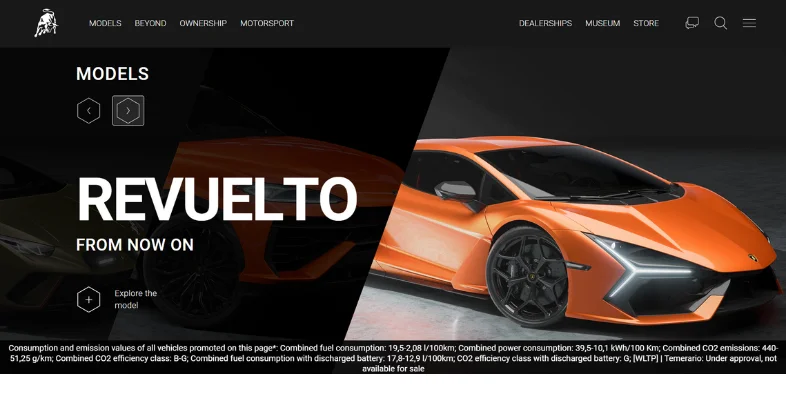
- Italian Supercars: Lamborghini is one of the extremely opulent vehicles fabricated by Volkswagen Group since its acquisition in 1998 and known for its stupefying design alongside remarkable features.
- V12 Motors: Lamborghini is well-known for its V12 engines which power such types as the Aventador and the Huracán.
- Exclusive Branding: The brand’s eliteness, with restricted production models, maintains its status as an image of wealth and victory.
- Innovation: Lamborghini proceeds to improve with hybrid technology, as seen in the Sián, while holding its focus on high-performance engineering.
- Global Appeal: Lamborghini’s supercars are sold in over 50 nations, maintaining a strong presence within the luxury car market.
5. Bentley – The British Luxury Car Brand
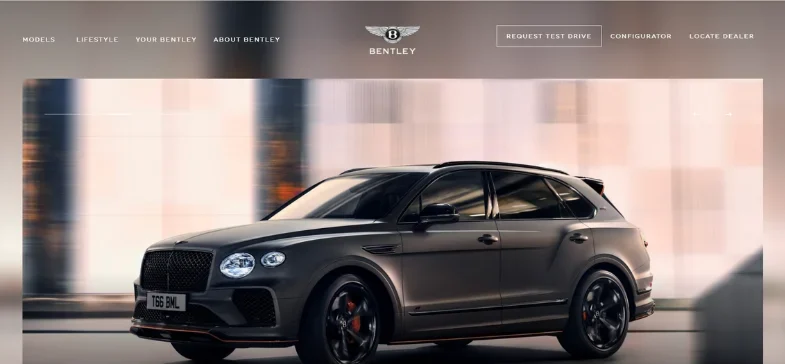
- British Luxury: Bentley, under Volkswagen since 1998, could be a British luxury car producer known for its hand-crafted vehicles that combine style with execution.
- Mulsanne Legacy: Bentley’s Mulsanne and Continental models epitomise luxury, promoting bespoke customisation and predominant consolation.
- Electrification: Bentley is moving towards a zapped future, with plans to have a totally electric lineup by 2030, starting with the Bentayga Crossover.
- Craftsmanship: Bentley is popular for its consideration to detail, with each vehicle counting handcrafted contributions using the finest materials.
- Global Luxury Market: Bentley offers an impressive attack across the global luxury segment, much more in areas including the Usa, China as well as Europe.
6. Bugatti – The Luxury Hypercar Manufacturer
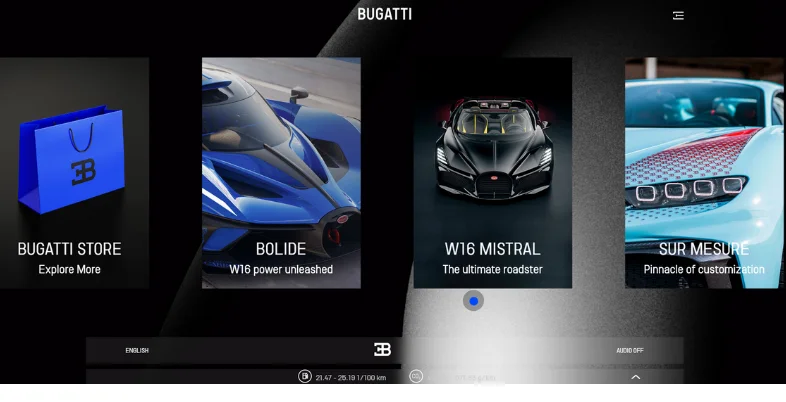
- Hypercar Pioneer: Bugatti has been a subsidiary of Volkswagen since 1998 but its fame results from designing some of the fastest and most expensive hypercars in the world including Veyron and Chiron.
- Engineering Marvel: Bug has established its reputation for the progressions in engineering; attaining heights in speed, performance and opulence with its automobiles.
- Exclusive Production: Bugatti’s production is extremely constrained, with each model being a rare collector’s thing, improving its exclusivity.
- Luxury and Performance: Bugatti mixes luxurious craftsmanship with extreme execution, targeting the ultra-wealthy fragment of the market.
- Innovation: The brand proceeds to push the boundaries of car designing, experimenting with new materials and innovations to upgrade performance.
7. SEAT – The Spanish Brand
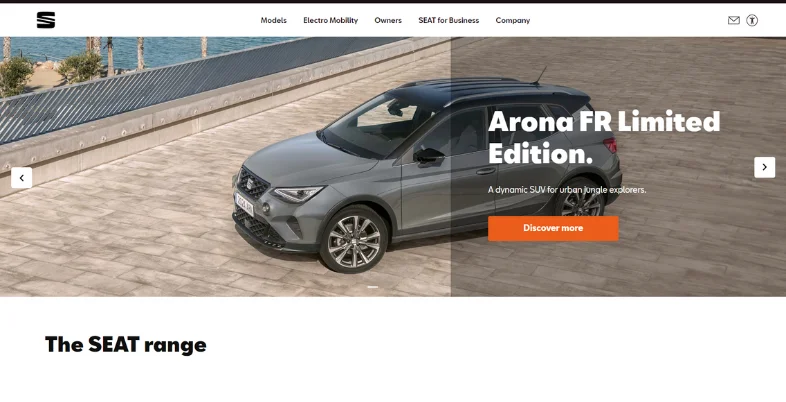
- Spanish Origin: Seat, established in 1950 and procured by Volkswagen in 1986, is a Spanish vehicle manufacturer known for its energetic, sporty vehicles.
- Affordable Mobility: Seat focuses on giving reasonable, stylish cars that request to younger drivers, particularly in Europe.
- Innovation: Seat has invested in electric versatility, propelling models like the Mii Electric, reflecting its commitment to sustainable transportation.
- European Market: Seat incorporates a solid presence within the European market, especially in Spain, Germany, and the UK, contributing altogether to Volkswagen Group’s sales.
- Design: Known for its dynamic design language, Seat vehicles are recognized for their modern aesthetics and engaging driving involvement.
8. Škoda – The Czech Automotive Giant
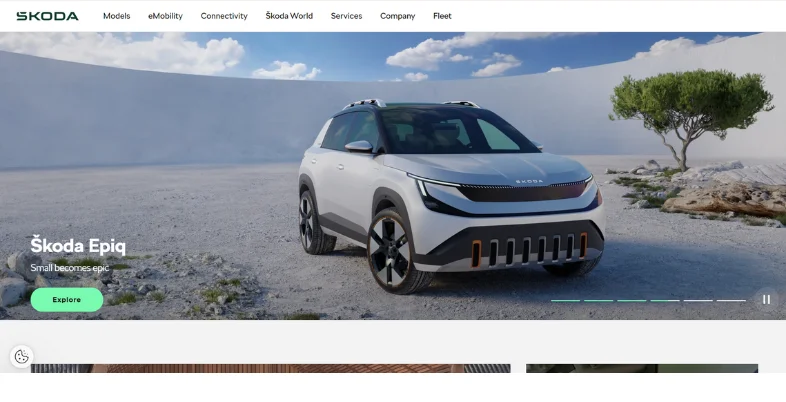
- Czech Heritage: Established in 1895, Škoda is one of the oldest car producers within the world, procured by Volkswagen in 1991.
- Value for Money: The brand successfully advertises affordable and high-quality cars, which SKoda is and this has made it highly recognizable in Europe and other parts of the world.
- Innovation: The brand focuses on viable development, with a strong lineup of vehicles that incorporate progressed security features and efficient engines.
- Global Reach: The perception of Škoda has been taken globally, specially in growth markets such as India where it contributes greatly a part of Volkswagen’s plan.
- Sustainability: The Czech car maker is also dedicated to sustainability with decisions to boost volumes of electric and hybrid autos in the following years.
9. Ducati – The Italian Motorcycle Maker
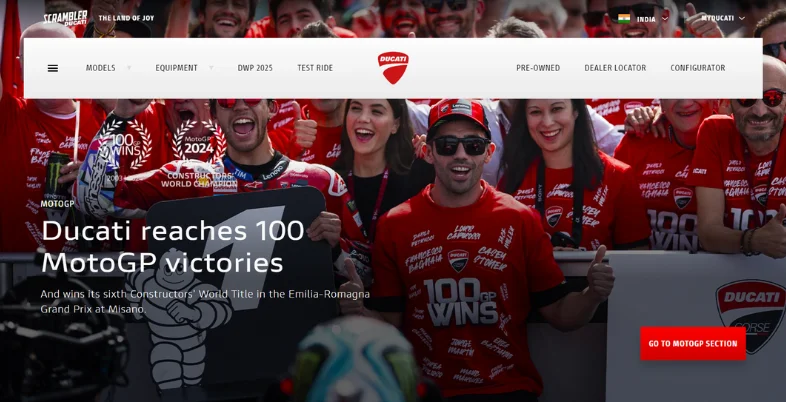
- Italian Motorcycles: Owning to Volkswagen since 2012, Ducati is another famous Italian brand that specialises in bikes that have a racing factor behind them.
- Superbike Excellence: Panigale, as well as other models of Ducati’s superbikes, is known for its speed, plan and building and often triumphs in motorsports.
- Innovation: Ducati proceeds to improve with advanced technologies like the Desmodromic valve system and lightweight materials, upgrading performance and security.
- Global Fanbase: The brand contains a dedicated worldwide fanbase, with a solid presence in Europe, the U.S., and Asia, driving deals and brand dependability.
- Racing Legacy: MotoGP and World Superbike Championships experiences of the Ducati are a strong testimony to establish its dominance and authority in motorcycle performances and constructions.
10. MAN – The Commercial Vehicle Specialist
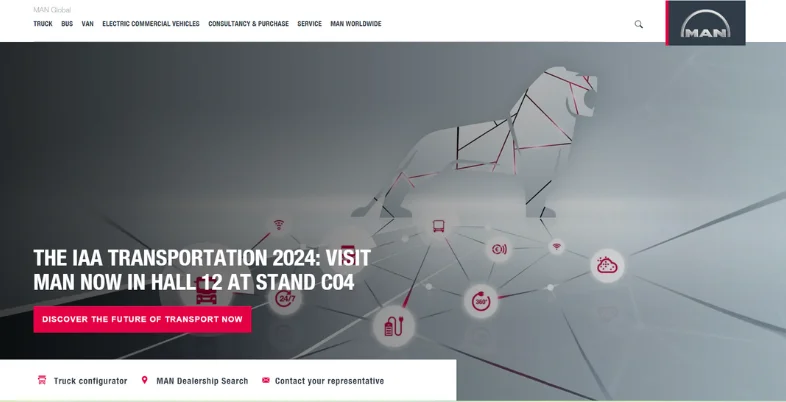
- Commercial Vehicles: MAN which has been a subsidiary to Volkswagen since 2011 can be one of the driving producers of commercial vehicles, including trucks, buses and motors.
- Engineering Excellence: MAN has been regarded for sturdy engineering; it offers some dependable and productive solutions for the transport and logistics business.
- Global Reach: The brand incorporates a strong worldwide presence, especially in Europe, Asia, and Africa, serving a wide range of businesses with its commercial vehicles.
- Innovation: MAN is focused on development in regions like autonomous driving, elective fuels, and electric portability, improving its product lineup for a sustainable future.
- Sustainability: The brand is committed to diminishing its carbon impression, with activities to create and deploy eco-friendly innovations in its commercial vehicles.
11. Scania – The Swedish Truck and Bus Manufacturer

- Swedish Engineering: Scania, procured by Volkswagen in 2008, is a Swedish maker of heavy trucks, buses, and mechanical engines, known for its planning precision.
- Heavy-duty Vehicles: Scania specialises in heavy-duty vehicles, promoting vigorous and reliable arrangements for long-haul transport, advancement, and public transportation.
- Innovation: Scania leads in improvement with a focus on sustainability, making hybrid and electric trucks, as well as exploring alternative fuels like ethanol.
- Global Presence: The brand has a solid presence in Europe, Latin America, and Asia, playing a key part in worldwide logistics and public transport.
- Sustainability: Scania participates in the endeavours which aim at building the transport sector with no fossil carbon dioxide emissions, at which the company is always in step with the Volkswagen Group’s environmental schedule.
12. Volkswagen Commercial Vehicles – The Commercial Vehicle Division
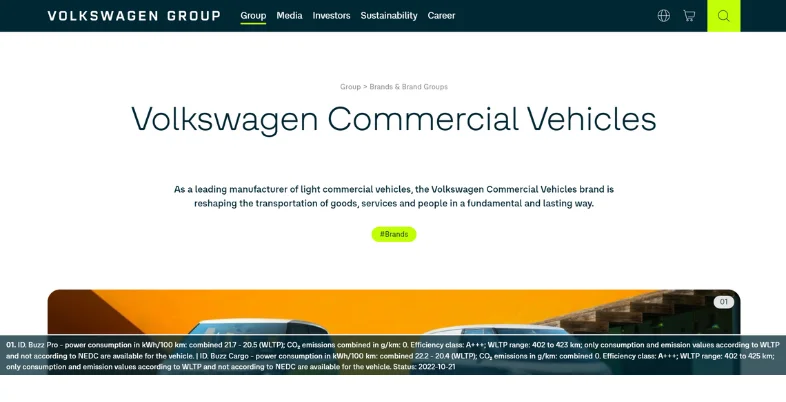
- Utility Focus: Volkswagen Commercial Vehicles is a subsidiary within the Volkswagen Group and focuses on the production and sale of vans, light trucks and recreational vehicles for exchange and leisure purposes.
- Iconic Models: It is associated with notorious models in the same manner as Transporter, Caddy, and Amarok that are utilised both in commercial and personal spheres sufficiently.
- Innovation: Volkswagen Commercial Vehicles is progressing in electrification, with electric versions of well known models like the ID, Buzz and e-Crafter, contributing to sustainable versatility.
- Global Operations: The brand features a strong worldwide footprint, with production offices in Europe, South America, and Africa, serving diverse markets worldwide.
- Versatility: The vehicles are characterised by flexibility, reliability and development as well which has led to many organisations as well as individuals consideration of the vehicles for practical and solution oriented purposes.
Volkswagen’s Impact on the Transportation Industry
Key Contributions:
- Product Innovation: Volkswagen has consistently introduced innovative products and technologies, such as diesel engines, direct shift gearboxes (DSG), and electric vehicles. These innovations have set industry standards and driven advancements in automotive engineering.
- Global Reach: Volkswagen has a strong global presence, operating in various markets and regions. This extensive reach has helped to shape the preferences and trends of consumers worldwide.
- Market Leadership: Volkswagen has been a market leader in several segments, particularly in Europe. Its success has influenced competitors to adopt similar strategies and focus on quality, innovation, and customer satisfaction.
- Sustainability: Volkswagen has made significant strides in sustainability, with a focus on electric vehicles and reducing its carbon footprint. This commitment to environmental responsibility has positioned the company as a leader in the shift towards sustainable transportation.
Opportunities for Transportation Business Ideas
Volkswagen’s influence on the transportation industry presents numerous opportunities for entrepreneurs and businesses. Here are some ideas:
- Electric Vehicle Charging Infrastructure: As Volkswagen and other automakers continue to invest in electric vehicles, there is a growing demand for charging infrastructure. Businesses can capitalize on this opportunity by developing and operating charging stations.
- Autonomous Vehicle Technology: Volkswagen is actively involved in autonomous vehicle research and development. Businesses can explore opportunities in autonomous vehicle software, hardware, and services.
- Automotive Aftermarket: The aftermarket industry offers a wide range of opportunities, including automotive parts, accessories, customization, and repair services. Businesses can cater to the needs of Volkswagen owners and enthusiasts.
- Transportation Services: Volkswagen’s focus on mobility and connectivity can create opportunities for businesses offering transportation services, such as ride-sharing, car rental, and fleet management.
By understanding Volkswagen’s impact on the transportation industry, entrepreneurs can identify potential transportation business ideas and capitalize on the growing market opportunities.
Ending Note
With Volkswagen Group having renowned auto brands that include Volkswagen, Audi, Porsche, Lamborghini, and Bentley among others, it signifies its strong hold on the global auto market. Each brand adds interestingly to this diversity, be it a luxury car, a sports car with high performance, commercial vehicles or even cruisers. By these acquisitions and speculations, the Group has been defining the mould for future transport through invention in technology areas like electric mobility and sustainability. Given the company’s strong penchant for quality, efficiency, and innovation in the functional units across the Volkswagen group of brands, it is evident that the firm will continue to remain relevant and triumph in the global marketplace while promoting a more sustainable automotive sector.
FAQs
How many brands does the Volkswagen Group own?
Volkswagen Group owns 12 brands, including Volkswagen, Audi, Porsche, Lamborghini, Bentley, Bugatti, Seat, Škoda, Ducati, MAN, Scania, and Volkswagen Commercial Vehicles.
Is Volkswagen involved in electric vehicle production?
Yes, Volkswagen Group is a pioneer in electric vehicle generation, with brands like Volkswagen, Audi, and Porsche offering a range of electric models just like the ID.4 and Taycan.
What is the role of Ducati within the Volkswagen Group?
Ducati, a premium motorcycle brand, improves Volkswagen Group’s portfolio with high-performance bikes known for their designing brilliance and racing success.
